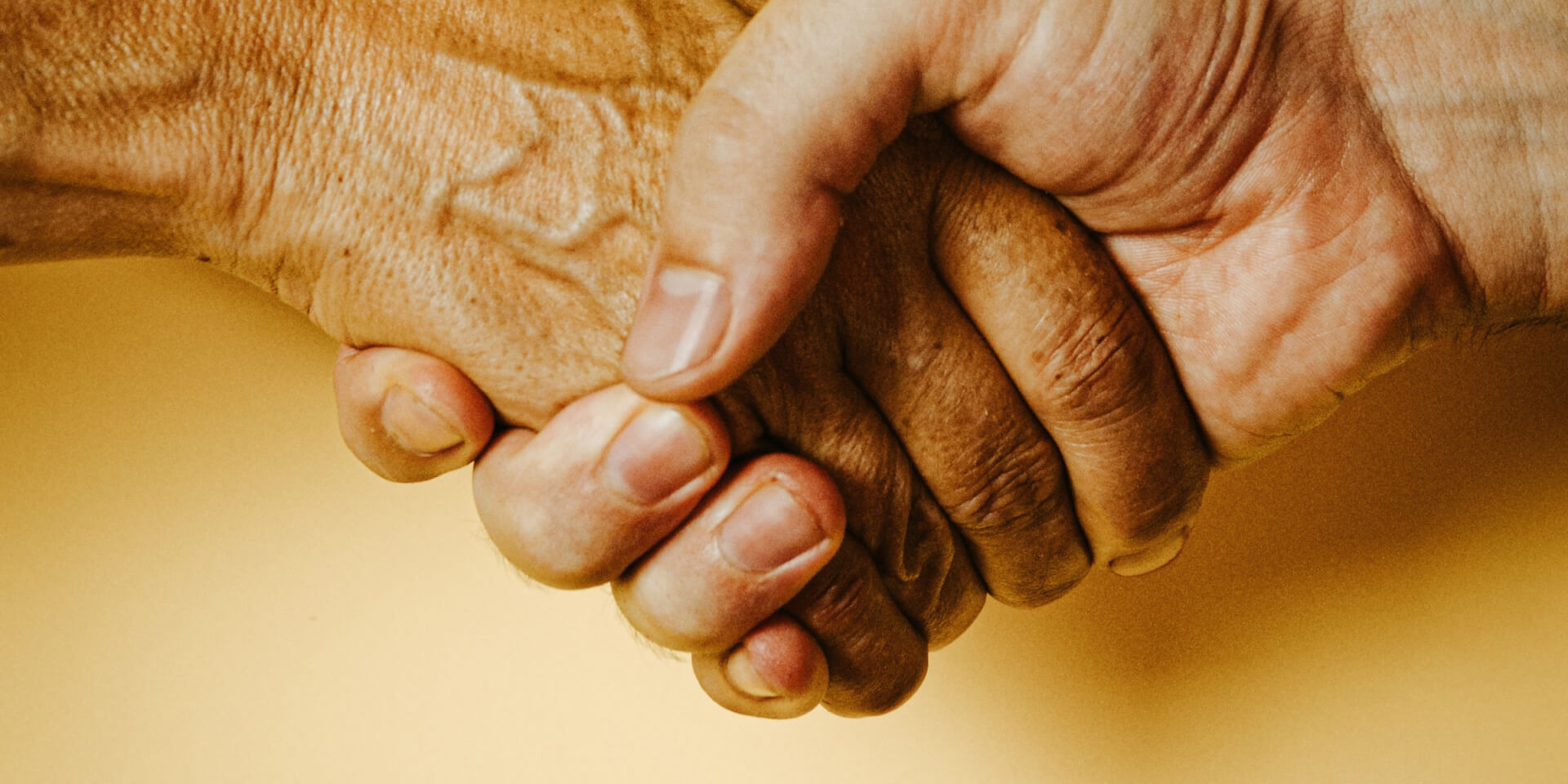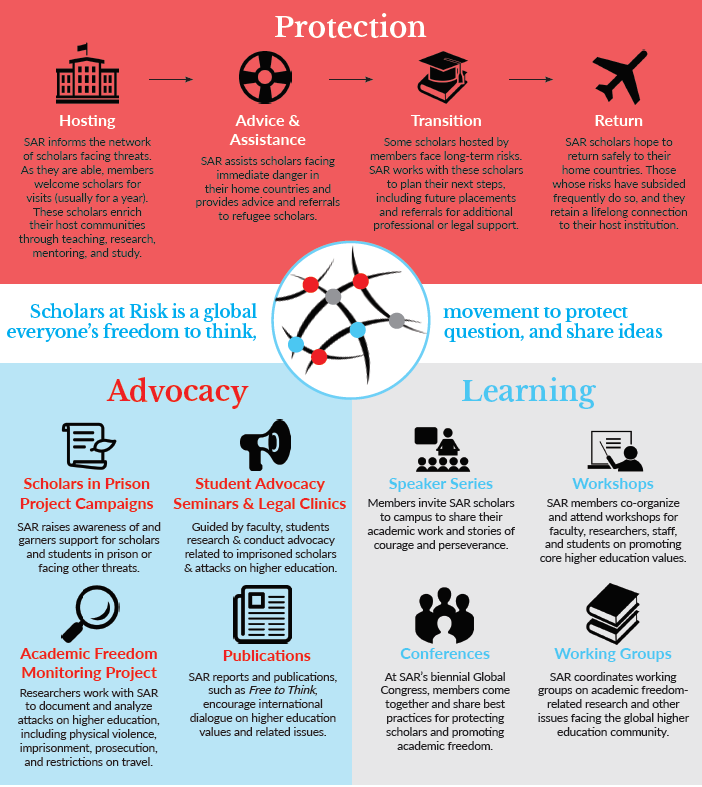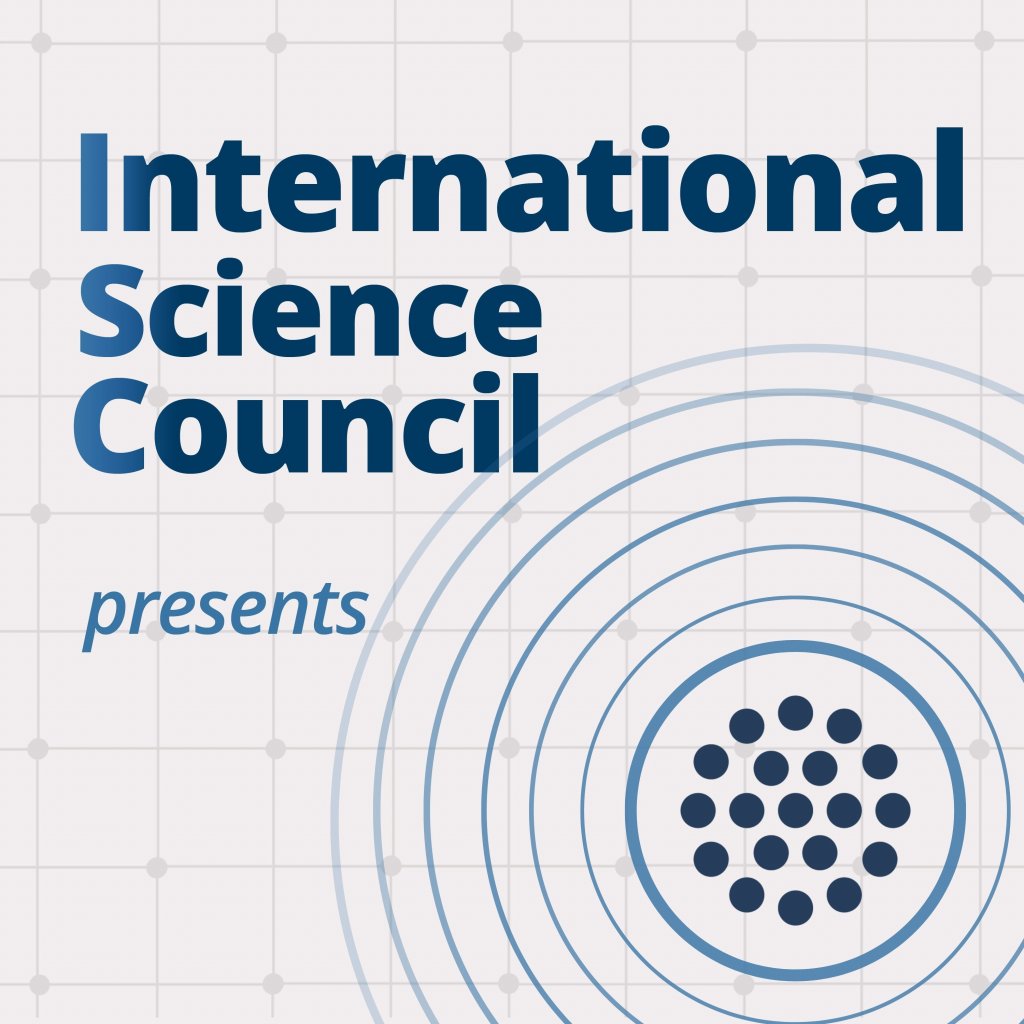
At a time when academic freedom is under threat in numerous countries, the work of the SAR network is invaluable to global science systems. The sanctuary and assistance provided by SAR has enabled hundreds of scholars around the world to freely continue their academic careers in safety. This work has lifelong benefit for individual scholars and their families, but also serves to preserve their skills, knowledge, and intellectual contributions for the benefit of wider society. Thus, the work of SAR directly promotes science as a global public good, and was recognized by the ISC Membership in their receipt of the ISC’s inaugural Scientific Freedom and Responsibility Award at the October 2021 General Assembly.

SAR member institutions assist persecuted scholars and students by offering temporary research and teaching positions, monitoring and advocating against attacks on higher education, and conducting learning initiatives to promote academic freedom. The ISC has worked closely with SAR for a number of years, particularly through the ISC’s Committee for Freedom and Responsibility in Science (CFRS). As part of its mandate to promote the free and responsible practice of science, CFRS works at the intersections between science and human rights. This involves monitoring and responding to individual and generic cases of scientists whose freedoms and rights are restricted as a result of carrying out their scientific research, or while acting as scientists.
Last year, Members of the ISC were invited to contribute submissions to SAR’s annual Free to Think report, which investigates and reports attacks on higher education with the aim of raising awareness, generating advocacy, and increasing protection for scholars, students, and academic communities. CFRS worked together with SAR and a number of ISC Members to identify suitable experts for the review of the latest report.
‘Attacks on higher education shrink the space where people can freely think and ask questions about complex and contentious issues,’ said SAR’s Executive Director, Robert Quinn. ‘Our Network members are central to protecting scholars targeted by these attacks and building a stronger, safer university space.’
Increasing the number and variety of scientific institutions engaged in SAR activities will serve to strengthen the protection and promotion of scientific freedom and responsibility, in accordance with the ISC’s Statute II Article 7. By formally joining the SAR network, the ISC can now increase its engagement with and contributions to the work of other member institutions and networks around the world.
‘Through the Scholars at Risk network, many organizations can work together to support students and scientists experiencing hard or impossible working conditions in their home country,’ said ISC Vice-President for Freedom and Responsibility and Chair of CFRS, Anne Husebekk.
‘Joining this network strengthens the work of the ISC and its Members in helping displaced scientists and thereby promoting science as a global public good.’
Anne Husebekk
Members of the ISC are warmly invited to join the SAR network as an institutional member, which offers a range of opportunities and benefits. To learn more about Scholars at Risk and how to get involved, contact CFRS Executive Secretary and Senior Science Office Vivi Stavrou or sign up for SAR updates.

ISC Presents: Science in Exile
On 30 September 2021, the International Science Council launched a series of six podcasts on the theme ‘Science in Exile’. The podcasts feature interviews with refugee and displaced scientists who share their science, their stories of displacement, and their hopes for the future. Several of the researchers who feature in the series talk about the support they received from Scholars at Risk, and you can listen here to find out more about the work of Scholars at Risk, in the words of the scholars themselves.
Image by Ave Calvar on Unsplash